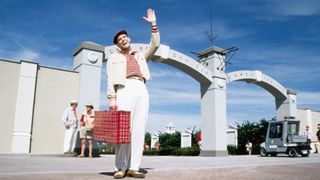Despite being arguably the most common type of film, drama movies are a tricky thing to define. Afterall, a lot of people believe the best stories come from conflict, and what's a conflict if not drama? So, would Godzilla be a drama film? There's plenty of conflict in it, but somehow, that just doesn't feel right, does it? No. There's an unquantifiable quality to the best drama movies that has more to do with atmosphere, character, and general vibes than other genres.
What we do know, though, is that with the exception of comedy films, dramas are films that stir the widest range of emotions, and they're equally capable of reducing people to floods of tears and gales of laughter – it's no surprise that drama is well represented in our best Oscar winning movies list. So, with that rather vague definition in mind, we've been through our highly-vetted Blu-ray collection and poured over IMDb to bring you a list of the ten best drama movies ever made.
10. The Father
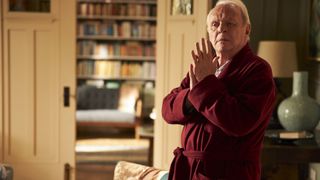
Director: Florian Zeller
Released: 2020
A horrifying but nevertheless empathetic examination of dementia and loss of one's autonomy, The Father is a deliberately mind-bending movie that uses clever editing and set design to put the viewer in a position where they can't trust their own memory. Full credit is due to director Florian Zettler and production designer Peter Francis for the way they subtly keep you on the backfoot by constantly changing the set and costumes to undermine any certainty the viewer might have. The film's real secret weapon, though, is Anthony Hopkins, who plays the titular father (aka Anthony) and delivers his best performance since Hannibal Lecter, swerving over the top caricature and giving Anthony a heartbreaking dignity.
9. No Country for Old Men
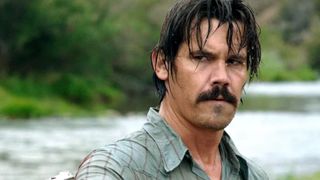
Director: Ethan and Joel Coen
Released: 2007
As methodical as a hitman stalking his mark and just as terrifying, No Country For Old Men is a film that embodies fatigue and a sense of impending doom. Thankfully, the Coen Brothers' intelligent direction and dark sense of humor keep the film from being a dour affair, and it helps that its star-studded cast – Tommy Lee Jones, Javier Bardem, and Josh Brolin – are giving their all. As great as the ensemble cast is, though, this is Bardem's picture, and we're just watching it. His portrayal of the deadly Anton Chigurh, a merciless hitman who makes the Terminator look like a cuddly community support officer, is one of the scariest performances ever put to film and what helps the film live on in the memory (or nightmares) of film fans around the world.
8. The Truman Show
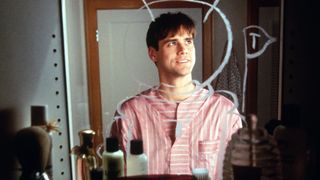
Director: Peter Weir
Released: 1998
Part dark comedy, part psychological drama, The Truman Show ranks amongst Jim Carrey's best movies and may just edge out Eternal Sunshine of the Spotless Mind for the top spot. While these days, it's remembered for its remarkable powers of prognostication – it basically predicted the idea of modern celebrity culture – it's important to remember it's an impressive film in its own right. Peter Weir's direction, in particular, is worthy of praise, and he manages to perfectly balance high drama with a wry sense of humor and a cynical edge that pervades the movie. It helps, of course, that his leading man, Jim Carrey, was at the height of his acting powers at the time, switching from a high-energy, funny man to a paranoid and world-weary soul at the flick of an internal switch.
7. There Will Be Blood
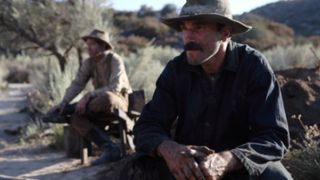
Director: Paul Thomas Anderson
Released: 2007
A genuine masterpiece from Paul Thomas Anderson about the corrosive nature of greed told through the eyes of Daniel Day-Lewis's ruthless oil tycoon, There Will Be Blood is unarguably one of the best movies ever made. Day-Lewis is, of course, brilliant (when is he not?), delivering a monstrous and magnetic performance that rightly won him his second Best Actor Oscar, but this is the film that arguably put Paul Dano on the road to superstardom, and for that alone, we love it. That said, there's a lot to love in this film, whether it's Robert Elswit's beautiful cinematography that captured the unquantifiable beauty of the deserts of the American Southwest or Dylan Tichenor's measured editing.
6. Taxi Driver
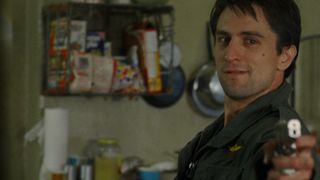
Director: Martin Scorsese
Released: 1976
Perhaps Martin Scorsese's most iconic film and certainly one of his darkest, Taxi Driver, explores the damaged mind of Travis Bickle (Robert De Niro), a cab driver working the sleazy streets of New York City. Grittier than an arctic road in winter and a borderline horror film at times, this bleak tale of a man slowly losing his mind is rooted in DeNiro's hypnotic and unhinged performance. Still, credit is due to Scorsese and his cinematographer, Michael Chapman, for finding the beauty in the squalor and dirt of '70s New York.
5. Casablanca
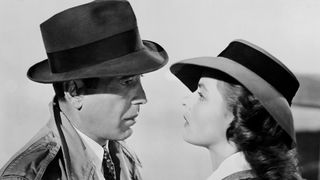
Director: Michael Curtiz
Released: 1942
The archetypical romantic drama Casablanca tells the story of Rick Blaine (Humphrey Bogart), an aloof and cynical man running a nightclub in Casablanca during World War 2. Rick's relatively peaceful world is shattered, however, when the love of his life, Isla Lund (Ingrid Bergman), walks through the doors of his gin joint and forces him to abandon his selfish facade. Featuring career-best performances from both Bogart and Bergman, Casablanca is a sentimental story about putting the needs of others before your own. Still, the film's wartime setting and the intrigue at the heart of its plot make it a surprisingly exciting watch that helps it avoid feeling schmaltzy.
4. Tokyo Story
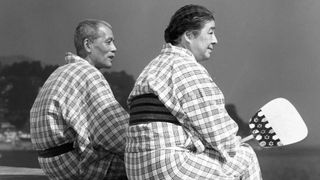
Director: Yasujirō Ozu
Released: 1953
The jewel in Yasujirō Ozu's directing crown and widely considered his greatest work, Tokyo Story is a tender and heartbreaking study of loneliness and the friction between old and young told through the story of the elderly, Shūkichi (Chishū Ryū) and Tomi Hirayama (Chieko Higashiyama) visiting their family in Tokyo. An unostentatious film, Tokyo Story deliberately eschews grand theatrics and conventional cinematography. Instead, Ozu takes a minimalist approach to both the story and camerawork, which allows the film to showcase a grounded but no less dramatic reality, with the focus entirely on its central characters. Still, despite its stripped-back facade, Tokyo Story manages to be quietly radical in its own way, essentially serving as a criticism of our modern selfishness but offering no easy answers to how to fix it.
3. The Shawshank Redemption
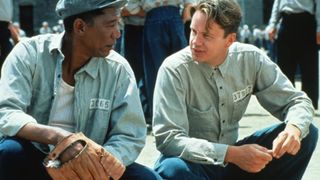
Director: Frank Darabont
Released: 1994
If you've ever been flipping through TV channels and stumbled across The Shawshank Redemption, you know the enthralling power of this magnificent prison drama. The tale of Andy Dufresne's time at Shawshank State Prison is a gripping one of the most watchable movies ever, and it's easy to understand the beguiling power of Shawshank. Directed by the master of the Stephen King adaptation, Frank Darabont (he'd later make the superb Green Mile and The Mist), this relatively simple story about the power of hope in the face of desperate circumstances is a powerful and appealing message that belies the film's easygoing tone.
2. Schindler's List
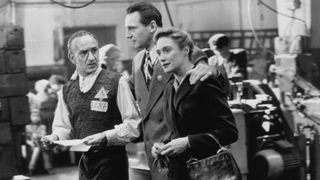
Director: Steven Spielberg
Released: 1993
Shot in stark black and white, Schindler's List is an unflinching examination of one of the darkest chapters in human history. Directed by Steven Spielberg, the film tells the true story of Oscar Schindler (Liam Neeson), a German industrialist who saved more than 1,000 Jewish refugees from The Holocaust by employing them in his factory. As you might expect, considering the subject matter, Schindler's List is a tough but rewarding watch that explores the shocking dichotomy between humanity's capacity for cruelty and heroism. Every element of the film is pitch-perfect, from John Williams' heartwrenching score to Janusz Kamiński's thoughtful and evocative cinematography. That said, we'd be remiss not to mention Neeson, whose quietly charismatic performance is a perfect match for the sensitive story being told. Schindler's List is not only one of the best '90s movies, but undoubtedly one of the greatest films ever made.
1. Citizen Kane
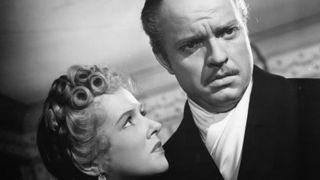
Director: Orson Welles
Released: 1941
Citizen Kane and Vertigo often wrestle for the title of 'the best film ever made', but when it comes to outright human drama, who in their right mind wouldn't put Orson Welles' magnum opus in the top spot? In terms of technical achievement, Kane is lightyears ahead of its time, with Greg Toland's gorgeous cinematography and Robert Wise's innovative editing contributing to the modern feel of the movie. Still, the real reason for Kane's inclusion on this list is its superb storytelling; Citizen Kane does the impossible and captures the complexity and nuance of a man's life in just under two hours. It's a genuinely staggering achievement, inspiring countless directors and writers in the decades since.
